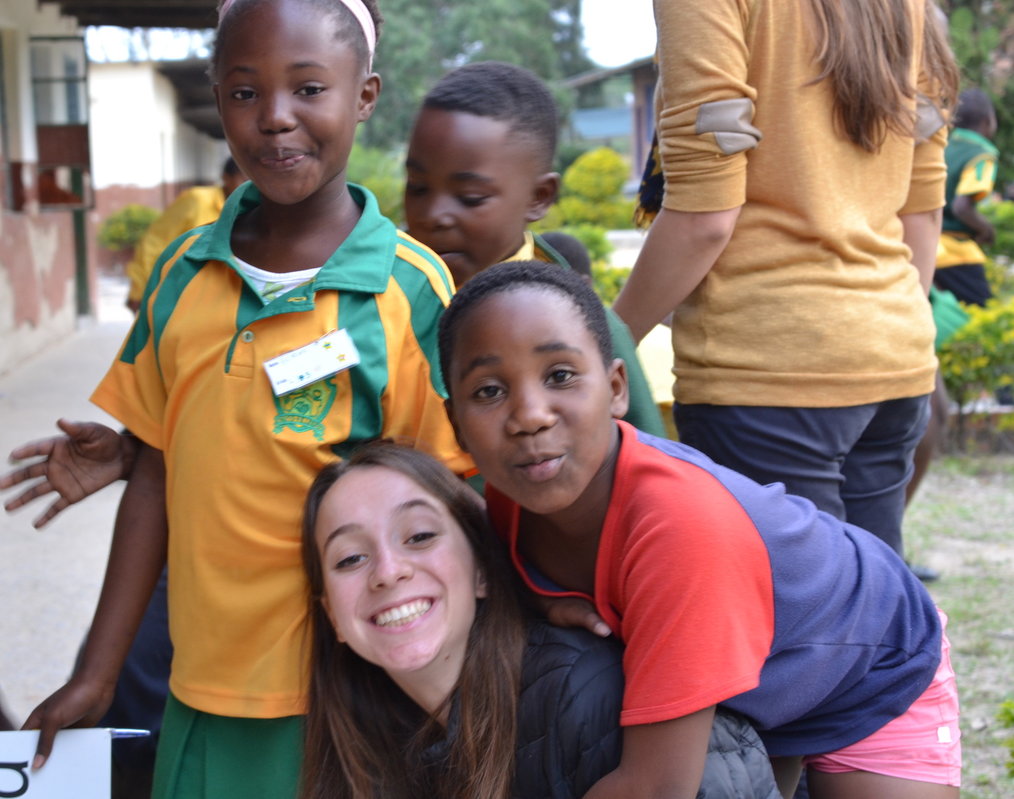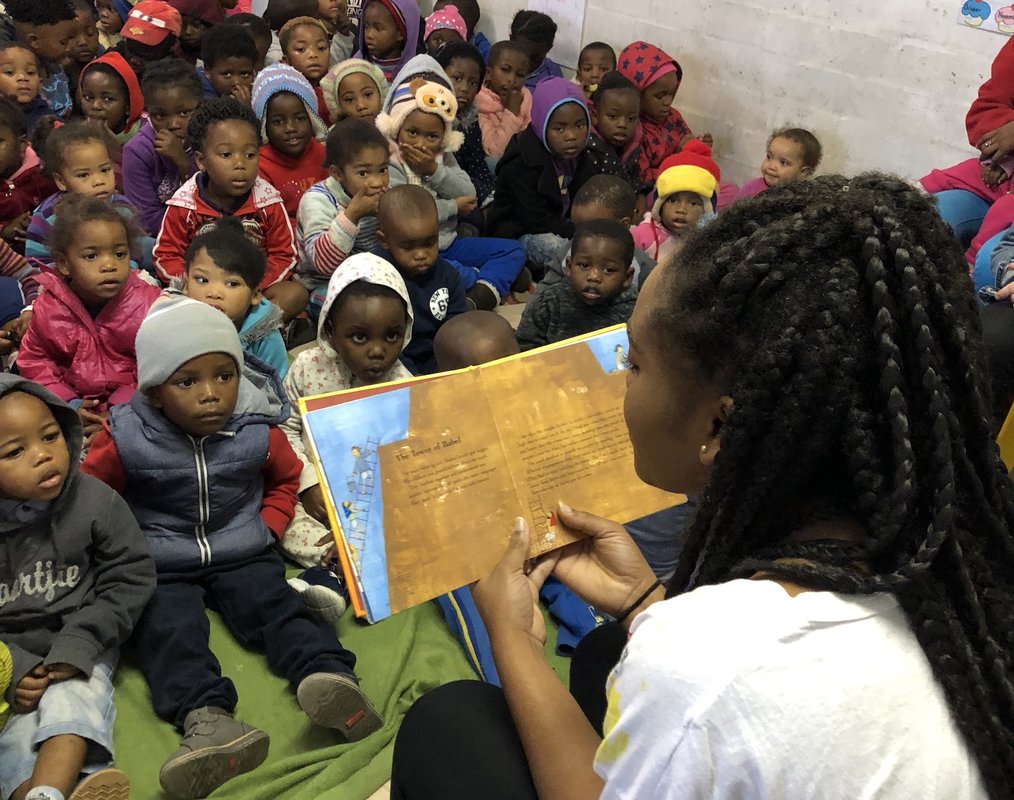What You Should Know About Volunteering with Children

Volunteering abroad with children is one of the most appealing experiences for first-time (and many-time) volunteers, and for totally understandable reasons. If you enjoy working with children and want to make a difference for those in need, working in refugee camps or in orphanages seems like a natural choice.
However, in recent years, the ethics behind volunteering at foreign orphanages have come into question, with a slew of unsavory organizations taking advantage of the hype to scam volunteers into funding unsustainable -- or even phony -- initiatives, resulting in an unexpected surge of orphanages and child trafficking.
Though we don't want to dissuade you from volunteering with children overseas, it's important to understand the complexities at work in this particular area, as well as figure out if your assistance is truly the best decision for the children that you'd like to help. Here's how to get started.
For How Long Should You Go?
Regardless of the volunteer project, a longer duration is always better. Time allows you to build a rapport with your colleagues and the local community, making you a more helpful volunteer and ensuring you get the most out of the experience. Two weeks is a good start, and usually the minimum for a lot of volunteer projects abroad.
But what if you can’t commit weeks or months of your time?
Elementary education requires multiple degrees in the States and many other countries for a good reason, and the kids you’re volunteering with deserve a great education like everyone else.
Fret not! There are plenty of organizations with opportunities better suited to shorter commitments, like staffing an outing or a field day. Most organizations make their minimum commitment clear, but you should also check to see if a shorter duration limits the kind of work you can do.
Where Should You Go?
In some ways, deciding where to volunteer abroad with children is the same as deciding where to go for any other trip. Think about the climate you want to work in, and remember that the northern and southern hemispheres have opposite seasons. Cities and towns close to international hub airports will likely be cheaper and have more options for pre- or post-placement travel.
Think about your language abilities. Unlike a regular trip, you will be working, probably with locals, so your language skills and theirs will make a big difference. Also, children are less likely to speak a foreign language (unlike staff on an environmental conservation program) so knowing their language will help you communicate better with them.
Consider the Position and Qualifications for Volunteering with Children

What will you be doing during your volunteer placement? When it comes to children, many organizations just need extra hands. As long as you know what’s expected of you, making sure everyone shares their crayons is manageable.
However, if you're being enlisted for instruction beyond kickball, it should raise an eyebrow. Elementary education requires multiple degrees in the States and many other countries for a good reason, and the kids you’re volunteering with deserve a great education like everyone else. If you’re qualified to provide that, enjoy sharing your expertise. If not, be wary of any organization asking you to take on work you aren’t qualified to do.
Key questions to get you started:
- What qualifications would you need to do this job in your home country? Do you have them?
- Do you need to obtain any certifications before you go, like CPR or TESOL?
- How many hours will you be expected to work?
- Will the work be enjoyable for you?
Which Organization Should You Work With?
Picking an organization is probably one of the most important decisions you will make about volunteering with children abroad. Ask a lot of questions -- a good organization won’t mind, and will likely have an FAQ document to answer many of them. Whenever possible, read reviews or directly contact past volunteers to get honest, first-hand opinions.
Key questions to get you started:
- Do you require background checks for volunteers? (The answer should be "yes")
- What kind of checks do you have in place to protect children / make sure the project is in their best interest?
- Will there be any cost associated with volunteering?
- Are room, board, and local travel included in the cost?
- Will I have a supervisor?
- What information can I expect pre-departure?
- What language skills are necessary?
- What physical skills are necessary? Is the location and the work accessible?
What Is the Extent of Your Impact?
We all want to make sure that our volunteer hours go toward an ethical company, and that our efforts accomplish as much as possible. The best organizations put their clients’ needs front and center, and work toward resolving an issue, effectively putting themselves out of business.
Aside from reading reviews and talking with a staff member, you can look at their website and annual report, where they should share their history, mission, examples of success, and financial information.
Key questions to get you started:
- Why was the organization founded?
- Where does their funding come from? Is it in jeopardy?
- How effective is the organization? How many people do they reach, and what impact do they have in their lives?
- To what extent do locals own and operate the organization?
- What ties do employees have to the population they’re serving?
- Are any locals being put out of a job so you can volunteer?
- Are the children’s needs the top priority?
- What kind of vetting process do volunteers have to go through?
Should You Bring / Make a Donation?

Some volunteer placements ask you to make a donation, whether in the form of a volunteer fee, a tax-deductible donation or by bringing some supplies with you. While the idea of paying to volunteer abroad scares some people off, it can absolutely be done ethically.
If you’re asked to make a donation you should feel comfortable asking a few questions about what it will cover. If you’re paying a fee, look at some other similar groups and see how their fees compare. There’s nothing wrong with covering the cost of your room, board, and other logistics, but you want to be sure the fees are fair and going to the right place.
If you’re asked to bring supplies, be sure to request an updated list so you can bring what they need most -- sometimes the needs of the organization aren't what we would expect them to be. It’s also worth checking on numbers and who you should leave the donations with, so you don’t accidentally cause a mob scene over the soccer balls or colored pencils you bring.
Follow the Rules and Remember that You're Temporary
Organizations always set rules and guidelines for their volunteers, but it’s especially important to follow them to the letter when you’re working with children or another vulnerable population. Children form attachments easily, and the rules are put in place for their safety and emotional well-being.
Try not to make assumptions -- good or bad -- about the homelife or histories of the children you work with.
They also may have allergies or other issues you don’t know about, so refrain from treating your first day like Halloween. It may be hard not to spend extra time with your favorite little one, and you may find promises accidentally slipping out of your mouth when surrounded by cuteness, but remember that in the end, the kids will be the ones most upset if something goes wrong.
Often, the children at organizations actively seeking foreign volunteers are vulnerable in other ways as well. They may be refugees, orphans, live in an impoverished area or have special needs. Your supervisor will likely let you know if there’s anything else you should be aware of, but to be on the safe side, try not to make assumptions -- good or bad -- about the homelife or histories of the children you work with.
Keep an open mind, and don’t press them for details. They may open up to you in time, but they may not -- after all, you are in their life on a temporary basis.
Keep the Momentum Going
Many volunteers find that they don’t want their time abroad to end. There are certainly ways you can keep that great feeling in your life, beyond just extending your stay. You could volunteer with a youth organization back home, or consider a career involving direct service with children.
It’s not unusual for non-profit and international development professionals to cite a volunteer abroad experience as their career inspiration. Another option is more indirect action, like fundraising for your host organization or an international group that supports children, like UNICEF.
Take in Every Moment
Volunteering with children can be incredibly rewarding and a lot of fun. You will find your belly aching from laughing so hard, but you might also feel heartsick when it’s time to go. Try to take in every moment, because it will be over before you know it!
Have you volunteered abroad with children? Share your advice and stories in the comments!
